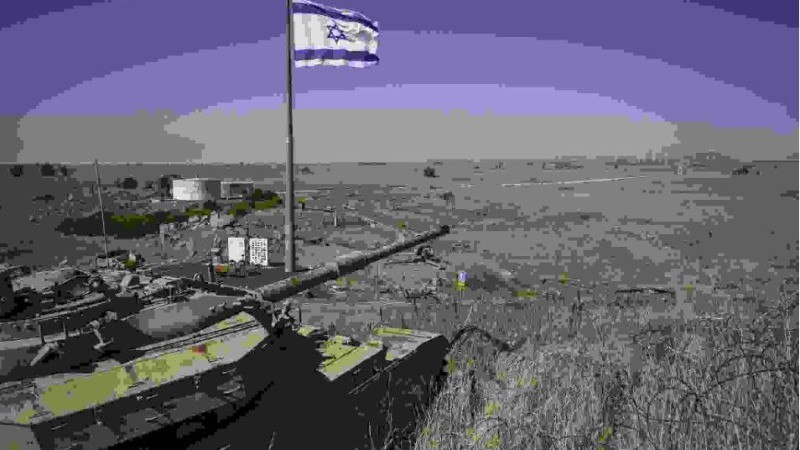
Jews in Israel began observing Yom Kippur, the holiest day in the Jewish calendar, as airstrikes were reportedly launched from Lebanon. The Israeli Defence Forces (IDF) identified two UAVs (unmanned aerial vehicles) crossing into central Israel from Lebanon. One UAV was intercepted, while a civilian building was struck.
The IDF shared updates on the situation, stating that several rocket launches from Lebanon were detected as Yom Kippur began. The UAVs were monitored upon crossing the border, and interception efforts were made, with some damage reported in the region.
Hezbollah, a militant group based in Lebanon, issued warnings for Israelis to avoid military sites located in residential areas in northern Israel. As the conflict between Israel and Hezbollah, an ally of Hamas, escalates, here are key developments from the past 24 hours:
Yom Kippur: The Holiest Day in Judaism
Yom Kippur, known as the "Day of Atonement," is the most sacred day in the Jewish calendar. It takes place every year on the 10th of Tishrei, typically falling in late September or early October. This solemn occasion is dedicated to reflection, atonement, and spiritual renewal, making it a significant time for Jewish people around the world.
For traditional Jewish communities, Yom Kippur revolves around the themes of repentance and seeking forgiveness for sins committed over the past year. Observances include a complete 25-hour fast, abstaining from both food and drink, along with various forms of asceticism such as refraining from bathing, wearing leather shoes, or engaging in marital relations. These physical sacrifices are paired with extended prayer services, often held at synagogues, where worshippers spend hours in deep prayer and reflection. A key part of these services is the public confession of sins (known as Vidui), symbolizing a collective act of repentance.
Different Jewish denominations approach Yom Kippur with varying perspectives. For example, Reconstructionist Judaism places less emphasis on personal sin and more on setting positive intentions for the upcoming year, reflecting on accomplishments, and outlining future goals. In contrast, Orthodox, Conservative, and Reform Jews traditionally maintain a focus on personal and communal atonement.
Yom Kippur is closely linked to another significant holiday, Rosh HaShanah, the Jewish New Year. Together, these two holidays form the High Holy Days, also known as the Yamim Noraim (Days of Awe). Yom Kippur is the final day of the Ten Days of Repentance, a period that begins with Rosh HaShanah, during which Jews seek forgiveness from both God and their fellow humans, asking for a fresh start in the new year.
The sacred rituals of Yom Kippur emphasize spiritual introspection, urging individuals to mend broken relationships, seek forgiveness, and recommit to living a life of integrity and purpose. It is a day to focus on self-improvement, moral accountability, and building a stronger connection with God.